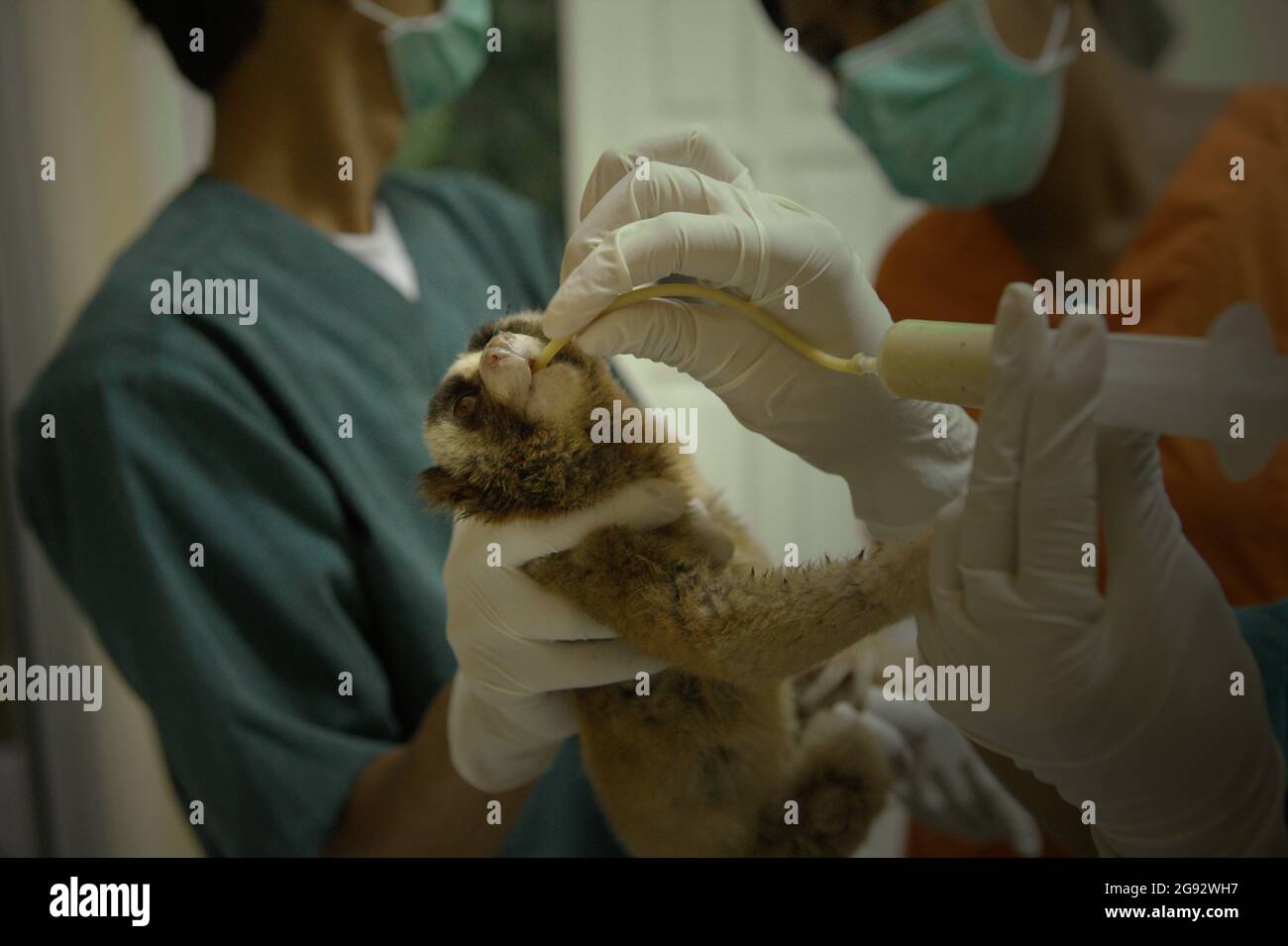A team of veterinarians led by Sharmini Julita Paramasivam is giving a medical treatment to a slow loris that were rescued from wildlife trade. This is one of the primates being rehabilitated at the facility operated by International Animal Rescue (IAR) in Ciapus, Bogor, West Java, Indonesia. The primates will be released into the wild once they are ready.

Image details
Contributor:
REY Pictures / Alamy Stock PhotoImage ID:
2G92WH7File size:
60.5 MB (1.4 MB Compressed download)Releases:
Model - no | Property - noDo I need a release?Dimensions:
5634 x 3752 px | 47.7 x 31.8 cm | 18.8 x 12.5 inches | 300dpiDate taken:
18 August 2011Location:
Bogor, West Java, IndonesiaMore information:
This image could have imperfections as it’s either historical or reportage.
Slow loris is a nocturnal species, venomous, and could transmit zoonotic diseases to human. The primates do not have characteristics as pets, according to scientists, so they will be likely dead in human captivity. “The keeping of slow lorises as pets is having a devastating impact on wild populations, particularly as, their natural habitat is also under threat. So it’s always extremely uplifting to see animals returning to the wild where they will be given a second chance to live their lives as nature intended, far from disturbance and interference from human beings, " said Alan Knight OBE, IAR Chief Executive, in a publication on IAR website, dated August 2020.